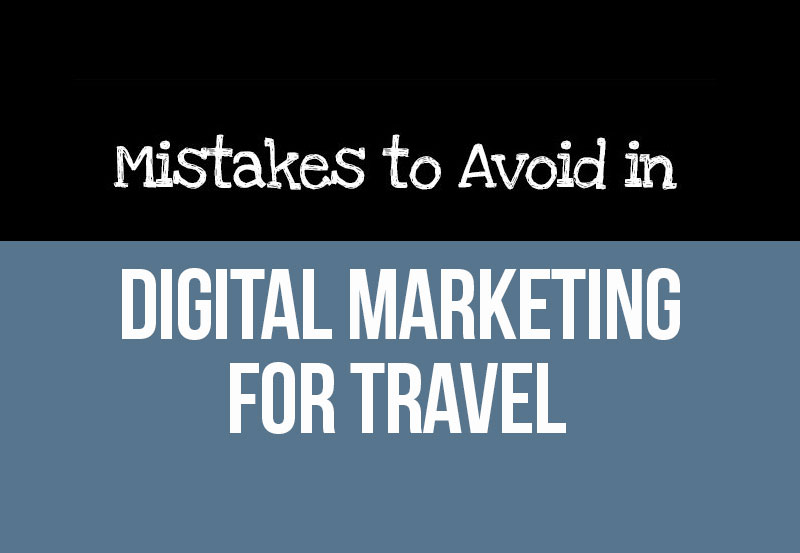How Social Media Has Transformed Travel & Tourism
Social Media has fundamentally changed the tourism industry and has affected all aspects of the tourism and hospitality sector ranging from travel research, to travel booking, and online reviews.
Some companies have taken advantage of this growing marketing medium, whereas those don’t have an effective social media strategy for their business, risk experiencing a major disadvantage compared with key competitors.
In this article, we will shed some light on how social media has transformed tourism marketing, and how you can ensure that your brand isn’t left behind.
If you’re looking for a practical help with Facebook ads, see our guide to Facebook Ads for Travel Businesses
Travel Research
The way you research your next holiday has undergone significant changes in the digital age.
Sites such as TripAdvisor along with social media platforms including Facebook and Twitter, are now the most popular mediums for travel-related research.
TripAdvisor revolutionised online travel research and has been the driving force behind the rise of online travel reviews which allow users to research a destination, hotel, resorts, and other travel related services before they book.
The value associated with immediate and trustworthy opinion from other customers has meant that it has become common, especially amongst the younger generations, to conduct all or most travel research online.
Most people now use social media and travel sites for conducting some part of their research.
People of all ages now use the web and are now far more comfortable completing high-value purchases online, including booking a holiday.
Statistics suggest that a whopping 87% of millennials use social media for travel research and use the information gathered through social media for creating their travel plans.
Social Media sites allow prospective travellers to check other people’s check-ins, photos and feedback; with almost 20% use Pinterest and Twitter for travel inspiration.
Social media has also made travel more spontaneous due to ongoing exposure to posts about a travel destination.
Review sites such as Feefo (travel focused) and Trustpilot, play an essential role in travel research nowadays.
Ratings and reviews often play an crucial role in any travel decision as people are more willing to trust a brand if it is rated highly by others, especially where the review is trustworthy (hosted on a 3rd party review site, not a company-owned reviews platform).
These statistics show the importance of social media and review platforms to travel business as no serious travel brand can survive in today’s digital world without a social media presence.
Customer Service
Customer service is another arena where travel brands are feeling the impact of social media.
Many travel brands now have a social media presence, which is often leveraged to deliver customer support.
This is especially important in the light of the fact that a vast majority of potential travellers use social media sites for conducting preliminary research.
According to Twitter, there has been a 59% increase in tweets aimed at brands in travel, transportation, and hospitality industry between March 2013 and February 2015.
A full 53% of users expect a brand to respond to their tweet within an hour, and this figure rises to 72% if the tweet is a complaint.
These figures may sound unbelievable but are a reality a produce of the change in customer behaviour with the rise of the internet
In today’s connected world, consumers want immediate answers to their queries and complaints.
Considering rising customer expectations, a travel brand overlooks social media at their peril.
Social Sharing
People have long shared photos of their holidays with friends and family.
Unfortunately for us all, this often entailed an hour or so at the next family get-together, looking at Uncle Andrew’s slides of their latest yacht charter holiday.
Social media has added a digital dimension to this phenomenon.
Now it’s possible to share the photos with all of their friends, family members, relatives, and colleagues with a single click.
And people can CHOOSE whether to look at them or not.
Uncle Andrew gets his likes…and everyone else can get on with their days!
Destination Discovery
There is a recent phenomenon known as the Instagram effect, which has an out-sized impact on travel plans of millennials as several studies have shown how important the medium is in making travel decisions.
According to a recent study, 30% to 40% of travellers under the age of 30, make their travel plans based on how Instagram-able the potential destination is.
Potential customers discover destinations and make their travel plans based on the fact if they can later share their travel pictures, videos, and other graphic content on their Instagram profiles or other social media networks.
Social media also remains one of the primary mediums of destination discovery as has been proven time and again.
User-Generated Content
Travel is one of the many industries affected by the rise of user-generated content or UGC, and it has often been singled out as a deciding factor behind any travel decision by consumers.
Almost 97% of millennials share the photos and videos of their holidays online.
Shared photos are the primary example of user-generated content, which often is the most important source of free promotion for travel-based businesses.
Younger audiences pay special attention to user-generated content as shown by this info-graphic.
According to various sources, almost 84% of millennials cited user generated content as having more influence than paid ads on their travel decisions.
It’s clear that modern-day consumers trust word of mouth and user-generated content than paid ads when it comes to buying anything online.
It just happens to be the case that social media is the primary channel used for disseminating user-generated content.
Re-shaping Loyalty programs
Loyalty Programs have always played an essential role in the tourism industry and have been used by businesses ranging from hotels to airlines to retain customers as retaining old customers is often much easier than finding new ones.
Various studies and surveys have shown the importance of trust signals, and how travellers trust user-reviews and ratings far more than the promotional and marketing material commissioned by a travel brand.
Social media is an excellent medium for user feedback.
Brands are realising the power of a single viral post or tweet, equally the negative effects of even 1 bad review if shared with enough number of users.
Travel businesses who use social media well, have generated positive mentions of their business and have designed innovative social media contests where users are awarded loyalty points for posting an update about a travel brand.
Users are only happy to share their reviews with their friends and family on social media platform as they often get reward points and gifts in return, creating a win-win situation for both the brand and the customer.
You may have yourself participated in such social media loyalty contests run by travel brands unknowingly where you may have got loyalty points in return for a like, post or a tweet.
Increased Transparency
One other often overlooked area, where social media has made its impact felt, is transparency.
Now the days of poor customer service and poor-quality service are certainly behind us.
With social media and sites like TripAdvisor, Booking.com etc. it’s become effortless to review a travel-based business, and the sites mentioned above contain millions of reviews of hotels, resorts, and other travel businesses.
These sites are often the first step in any travel plan as most users nowadays research beforehand before booking a holiday and they pay close attention to the online reviews and ratings left by previous buyers.
This is called social proof.

This has initiated a clean-up of the whole travel industry as brands have now become aware that poor quality service will not only affect their current customers but may also hinder their future growth.
Conclusion
It’s clear that social media has truly transformed the travel industry.
Travel businesses can no longer avoid having a social media strategy.
Younger generations are hooked to social media, and it plays a significant role in their travel plans.
It’s no longer enough to shout loudest about what makes you better than the rest.
Trust is built from relationships and understanding your customers.
Marketers must work to communicate a level of empathy with customers through social media, as well as the ensuring that the business’ social profile portrays a positive image for the business.
Travel businesses need to take advantage of this new marketing medium by adapting their marketing strategy and by making a conscious choice to evolve with the changing times.
By continuing to use the site, you agree to the use of cookies. more information
The cookie settings on this website are set to "allow cookies" to give you the best browsing experience possible. If you continue to use this website without changing your cookie settings or you click "Accept" below then you are consenting to this.














